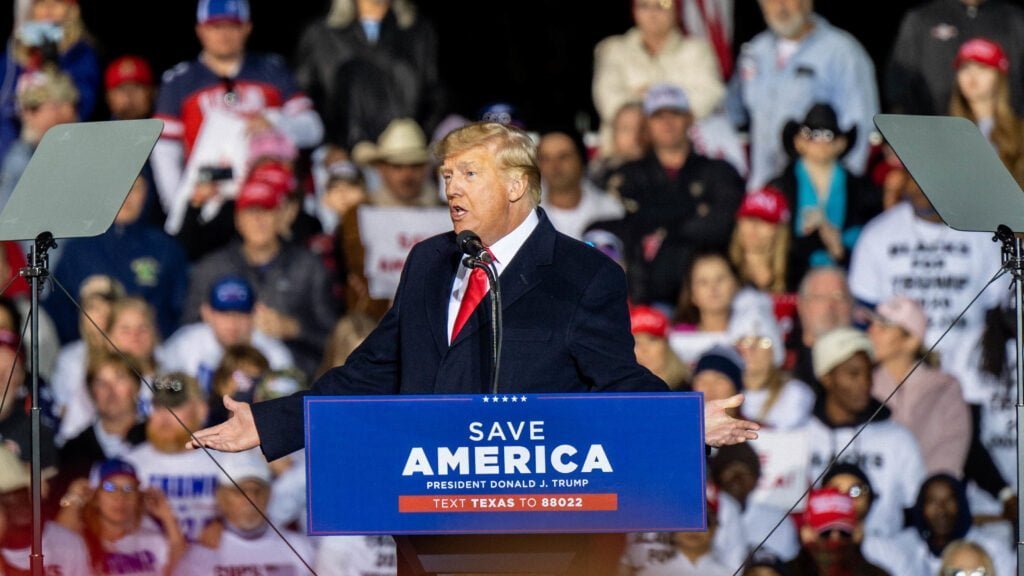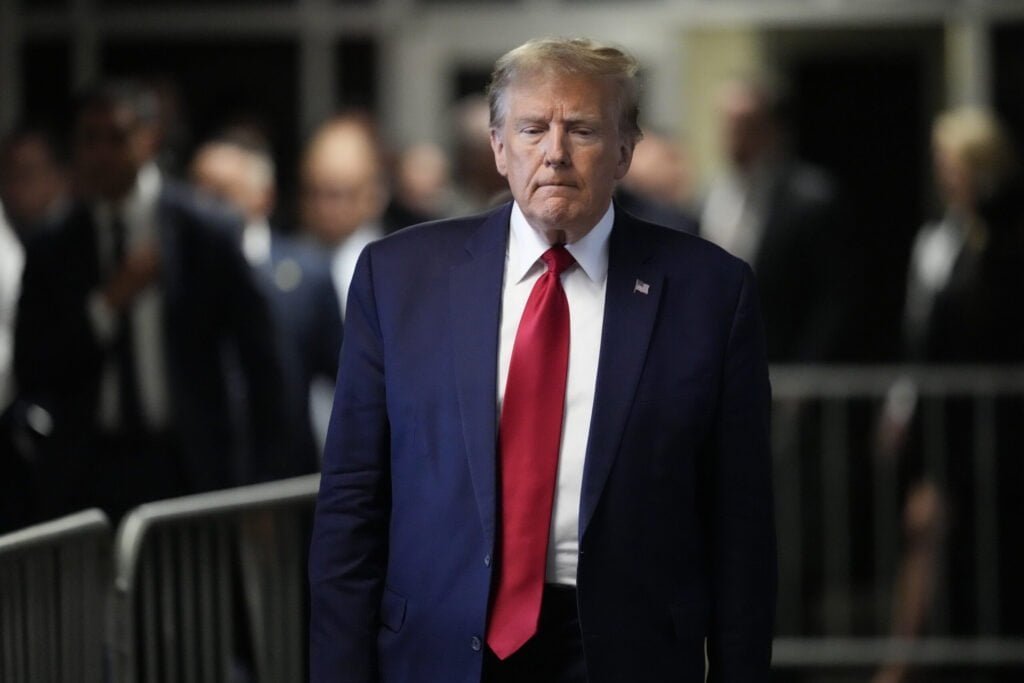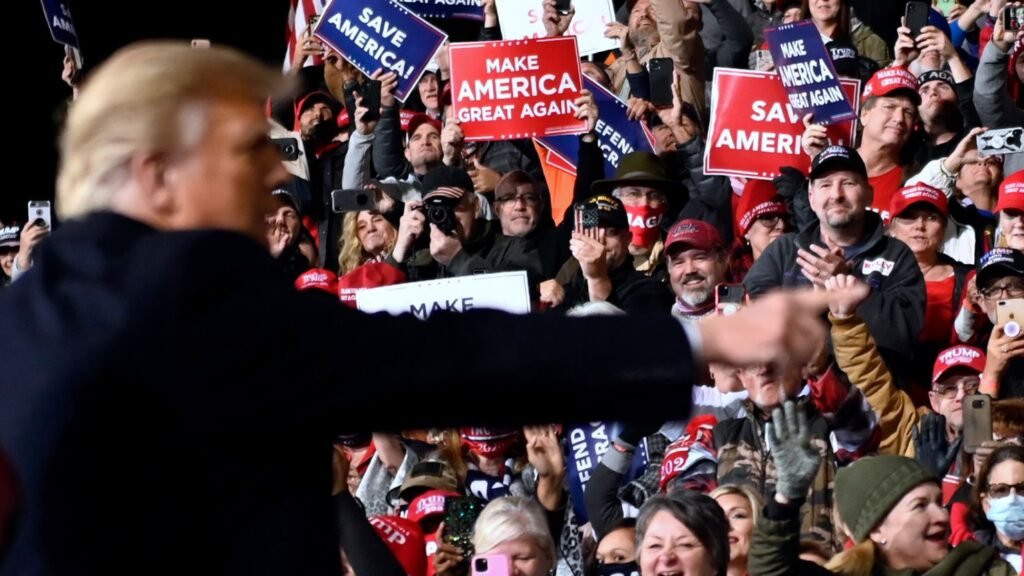You’ve probably heard that Donald Trump was found guilty in his criminal trial this week. The verdict has a lot of people wondering if this means he can still run for president in 2024 or if he’s now excluded from being on the ballot. It’s an understandable question since convicted felons lose certain rights, like voting in some states. But does a guilty verdict in this case legally prevent Trump from launching another bid for the White House? Believe it or not, the answer may not be so clear cut. The constitution doesn’t outright ban felons from the presidency. So before you assume Trump is out of the running, let’s take a closer look at this issue.
Donald Trump Found Guilty in New York Tax Fraud Case
Welp, the verdict is in and it’s not looking good for the former POTUS. After a lengthy trial, Donald Trump’s real estate company was found guilty on all counts in a 15-year tax fraud scheme.
What exactly was Trump found guilty of?
What does the verdict mean for Trump’s future?
Of course, the court of public opinion may see things differently. Voters could view the fraud conviction as a reflection of Trump’s character and trustworthiness, impacting his electability. There is also a possibility of additional charges against Trump personally down the road. For now though, he remains eligible to run again, despite this legal defeat. The ultimate decision is in the hands of voters.
What Does a Guilty Verdict Mean for Trump’s Political Future?
His base remains loyal
Trump still enjoys strong support from his base, and they likely won’t abandon him over this. They see him as a victim of a “witch hunt” and unfair treatment. As long as Trump’s base sticks with him, he’ll remain a powerful figure in the Republican party.
He can still run as the Republican nominee
The guilty verdict won’t legally prevent Trump from running for president again. The Constitution only requires candidates to be natural-born citizens and at least 35 years old. Unless barred from holding office, Trump is still eligible. Republicans may continue to see him as their best chance to win in 2024.
His focus has shifted to 2024
Despite the verdict, Trump’s team says he’s focused on the next election, not this trial. On Truth Social, his platform, Trump continues to hint at running again. His Save America PAC is also raising huge sums, which could fund another run.
Pardon is unlikely but possible
While a self-pardon is off the table, Trump could receive a pardon from a future Republican president. If he runs and wins again, he could pardon himself. However, accepting a pardon also means accepting guilt, and Trump is unlikely to do that. His best bet is to continue claiming his innocence to supporters.
The guilty verdict is a blow to Trump’s legacy but likely won’t derail his political aspirations. His base and party seem poised to stand behind him. Barring legal intervention, Trump appears on track to seriously consider a 2024 presidential run, verdict or not. The question is whether voters are ready for Trump’s potential return to the Oval Office.

Can a Convicted Felon Run for President? Examining the Rules
Could Trump run again in 2024? Surprisingly, the answer is yes—but his path just got harder.
Still, as an incumbent and populist, Trump maintains strong support. He could run as an independent and possibly win enough votes to take the presidency. While rare, convicted felons have run for president before, like socialist Eugene Debs, who campaigned from prison in 1920.
The bigger hurdle is getting on state ballots. Each state has its own rules for accessing the ballot, and some prohibit those with certain criminal convictions. However, the hush money crime falls into a gray area. Even if barred from some states, Trump could focus on swing states where he’s still popular.
A 2024 Trump campaign would be chaotic and divisive. His supporters would cry “political witch hunt,” viewing the verdict as a partisan attack. Detractors would argue that someone who violated the law shouldn’t lead the country. There are also ongoing state investigations into Trump’s finances and business practices. If convicted of additional felonies, he’d face steeper challenges running again.
While Trump has not announced his 2024 intentions yet, one thing is clear: this single guilty verdict alone does not preclude another presidential run. Despite the uncharted territory, as long as Trump maintains political capital and exploits loopholes, his name may well appear on ballots again. The American public will ultimately determine if they want a convicted felon in the Oval Office.

Will Trump’s Base Support Him Despite a Criminal Conviction?
Trump’s base of supporters have stuck by him through numerous controversies and scandals over the years. Will a criminal conviction for violating campaign finance laws by paying hush money to two women during the 2016 election finally shake their faith in him? The reactions following the guilty verdict were mixed, suggesting Trump’s core base may remain loyal.
Trump’s most ardent followers view him as a champion for their causes and values.### To them, the charges against Trump were just another attempt by the “deep state” and political elites to take down their leader. For these loyalists, their support for Trump’s policies and vision for America outweigh concerns over his personal flaws or legal troubles. They see him as a victim, not a criminal.
However, other Republicans and former Trump supporters expressed dismay over the verdict and said it damaged Trump’s credibility. The conviction confirms that Trump is willing to break laws and ethical norms to protect himself, raising doubts about his fitness for office. While they may still agree with some of Trump’s policies, his “win at all costs” mentality and disdain for rules are deal-breakers. For these Republicans, the guilty verdict provides further evidence that Trump lacks the temperament and integrity to be president again.
Trump’s conviction brings his legal and political future into question. ###He may face additional charges that carry prison time or fines. ###However, as long as Trump maintains the fierce loyalty of his base, he will remain a dominant force in Republican politics and could still run for president in 2024, despite his new status as a convicted felon.

Andrew Caballero-Reynolds/AFP/Getty Images
His base’s support, more than any law or social norm, shapes and defines the reality in which Trump operates.
As long as they stand by their man, Trumpism will endure and the possibility of Trump’s return will loom, conviction or not.
Donald Trump 2024 Bid: FAQs on Presidential Eligibility After a Felony
Can a convicted felon run for president?
Will Trump’s conviction prevent him from running?
How will voters react?
What are Trump’s chances if he runs again?
While Trump’s conviction creates uncertainties, one thing is clear: if he chooses to run again, the 2024 election will be a referendum not just on the future of America but on Trump’s political movement itself. His fate, and that of Trumpism, hangs in the balance.
Conclusion
Even if you don’t like Trump or his politics, his conviction raises complex legal questions about running for president with a criminal record. While felons can vote in most states, some experts argue the Constitution prohibits those convicted of felonies from serving as president. However, the law remains unclear, and Trump is likely to fight any challenges to another run. Whatever your views, this historic case will impact elections for years to come. The saga continues, so stay tuned as the legal drama unfolds. One thing’s for certain – American politics just got a lot more complicated.








Discussion about this post